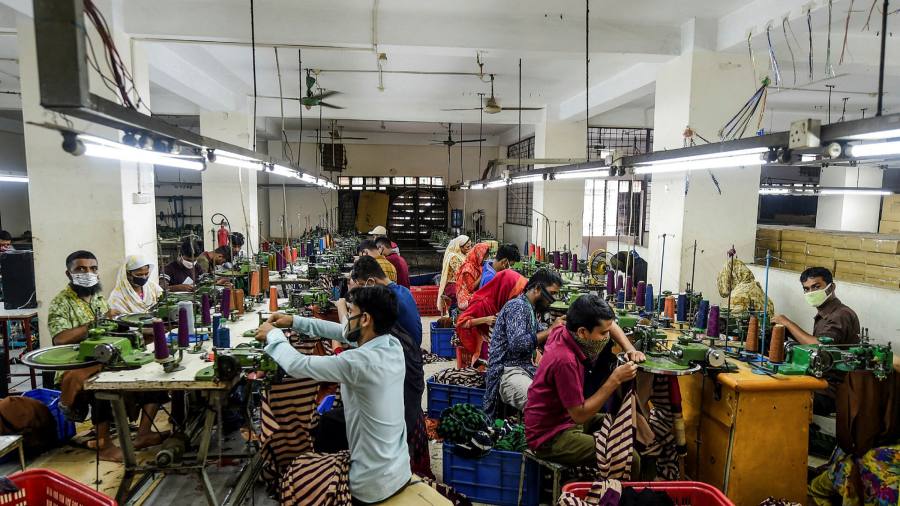[ad_1]
Bangladesh has approached the IMF for a multibillion-dollar loan, making it the latest South Asian country to seek international financial assistance as rising food and fuel prices globally strain emerging economies.
The IMF said Bangladesh has contacted it to start negotiations for a programme, adding that it was seeking a “Resilience and Sustainability” facility designed to help countries adapt to climate change. Local media in Bangladesh reported that the government was seeking $4.5bn.
“The IMF stands ready to support Bangladesh, and the staff will engage with the authorities on program design,” the IMF said. The IMF did not comment on the potential size of the package, adding that “the amount of support will be part of the program design discussions”.
Bangladesh’s approach to the IMF comes as nearby Sri Lanka and Pakistan have also sought assistance. Both countries have been hit by inflation, dwindling foreign reserves and ensuing domestic political upheaval.
Sri Lanka’s woes, in particular, have turned the country into a symbol of the political and economic dangers of surging commodity prices following Russia’s invasion of Ukraine this year.
Former Sri Lankan president Gotabaya Rajapaksa resigned and fled overseas earlier this month in response to widespread protests against his rule. Crippling shortages of fuel, medicine and food have prompted a dramatic decline in living standards since the country defaulted on its foreign debts of more than $50bn in May.
Many analysts worry that Pakistan could follow Sri Lanka in defaulting on its foreign debt unless it manages to stabilise its foreign reserves and currency.
Bangladesh has been better placed than other South Asian countries thanks in part to its stronger export sector, with the garment trade a valuable source of foreign currency.
It is now also struggling with a rising import bill, but Bangladeshi officials dismissed suggestions that the country was facing a crisis. They argued that Bangladesh’s foreign currency reserves — equivalent to about five months of imports — gave the country a cushion.
“If the IMF conditions are in favour of the country and compatible with our development policy, we’ll go for it, otherwise not,” AHM Mustafa Kamal, Bangladesh’s finance minister, told journalists in Dhaka on Wednesday. “Seeking a loan from the IMF does not mean Bangladesh’s economy is in bad shape.”
Economists are concerned that the pressures in South Asia, a region largely dependent on energy imports, will only intensify.
While Sri Lanka has yet to agree terms with the IMF, Pakistan this month reached a preliminary deal for a $1.3bn loan, as part of an existing $7bn assistance package.
Pakistan’s central bank governor Murtaza Syed told the Financial Times in an interview this week that he hoped the IMF would finalise the deal next month. “We have the cover of the IMF programme during what is going to be a very difficult 12 months globally,” he said.
[ad_2]
Image and article originally from www.ft.com. Read the original article here.

